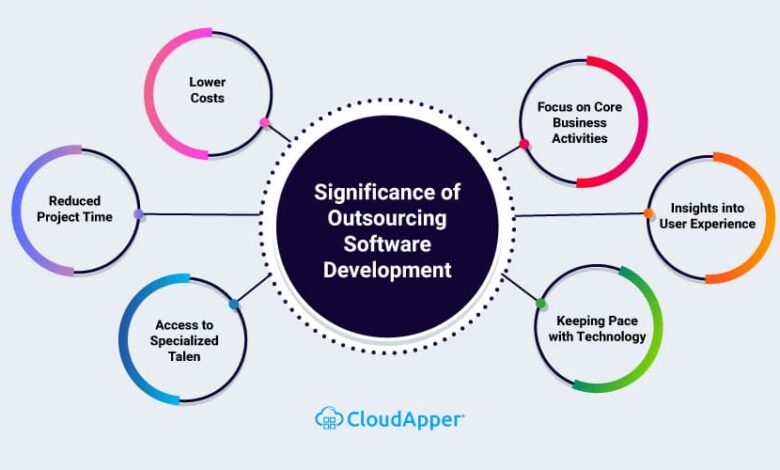Software Development Outsourcing: Essential Insights

In recent decades, digitization has transformed business operations, prompting companies to develop applications that streamline processes and enhance customer experiences. However, not all businesses can maintain an in-house software development team, leading to a notable rise in software outsourcing. This strategy is now commonplace, particularly among startups and established enterprises alike.
Understanding Software Development Outsourcing
Software development outsourcing involves hiring an external service provider to manage software projects. These services can encompass everything from building software solutions for internal use to developing applications for customer interaction. While some businesses might opt for in-house teams, the associated costs and resource demands can be prohibitive. Outsourcing offers a viable solution for companies seeking to expand their software capabilities without the overhead.
Key Benefits of Software Development Outsourcing
- Access to a Global Talent Pool
One of the primary challenges of hiring in-house developers is the limited talent available locally. Software outsourcing enables businesses to tap into a worldwide network of skilled engineers, ensuring high-quality deliverables regardless of geographical boundaries. When selecting an outsourcing partner, it’s essential to review their portfolio and client feedback to gauge their capabilities.
- Focus on Core Business Activities
Building and managing an in-house development team can divert attention from core business functions. By outsourcing software development tasks, companies can concentrate on their primary operations, such as marketing and customer engagement, while experts handle the technical aspects.
- Cost Efficiency
Establishing an in-house development team entails significant costs—recruiting talent, acquiring hardware, and investing in training. Software outsourcing reduces these upfront expenses, allowing businesses to allocate resources more effectively. Regions known for outsourcing, such as India, Brazil, and Eastern Europe, offer highly skilled developers at competitive rates.
- Faster Time to Market
Partnering with established software outsourcing companies often means working with experienced teams that can accelerate project timelines. These firms typically have the expertise and resources to deliver solutions promptly, allowing businesses to bring products to market quicker.
- Reduced Need for Micromanagement
With an in-house team, project oversight can become burdensome, leading to inefficiencies. Outsourcing transfers this responsibility to the project manager of the software company, allowing for a smoother workflow and freeing business leaders to focus on strategy rather than day-to-day management.
- Scalability
During the software development lifecycle, project needs can change rapidly, requiring additional resources or specialized skills. Outsourcing provides the flexibility to scale teams as needed without the delays associated with recruiting and hiring.
- Access to Cutting-Edge Technology
Technology evolves swiftly, and keeping up can be challenging for businesses not focused on software development. Outsourcing gives companies the advantage of leveraging the latest technologies and innovations from experts in the field.
Considerations Before Outsourcing Software Development
To ensure a successful outsourcing experience, consider these factors:
- Identify Your Requirements
Clearly define your project’s goals and objectives before seeking an outsourcing partner. This clarity is crucial in ensuring that the provider understands your needs and can deliver accordingly.
- Choose the Right Provider
Look for a software outsourcing company that aligns with your requirements. Assess their experience, past projects, and client reviews to determine their suitability.
- Budget Considerations
While cost is a primary motivation for outsourcing, ensure that budget constraints do not compromise the quality of work. A balance between affordability and quality is essential.
- Cultural Fit
Cultural compatibility can influence the success of outsourcing. Investigate the company’s values and work culture to ensure they align with your own.
- Security Policies
Protecting sensitive information is paramount. Evaluate the outsourcing partner’s security protocols and history regarding data breaches to safeguard your data and that of your customers.
Conclusion
Software outsourcing presents a strategic option for businesses looking to enhance their software development capabilities without the challenges of maintaining an in-house team. By carefully selecting an outsourcing partner, companies can save costs, improve efficiency, and access the latest technologies.
For organizations needing ongoing software development, consider collaborating with a reputable developer sourcing platform. Turing, for example, connects businesses with top-tier, pre-vetted developers, enabling firms to build high-quality remote teams quickly. Engage with Turing to streamline your software development outsourcing process and secure the best talent for your projects.




